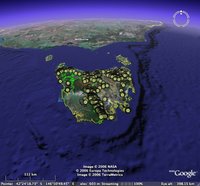From Russia with Love and Sustainability?
A coalition of two Russian logging companies, four of the world's largest users of paper products and one of the most important paper producers today released a project report "From Russia . with Transparency" documenting the key success factors in enhancing business practices, labour safety, and sustainable forestry in the Russian forest sector. The report is the outcome of a three-year joint effort to improve environmental and social performance in the Russian wood supply chain.
Together with the Russian partners work was done to improve safety training for forestry workers, introduce new logging technology, apply for Forest Stewardship Council (FSC) forest certification, and implement new guidelines and reporting practices. The work was observed and the findings were reviewed by Transparency International and the Russian Karelian Research Center.
The project partners span the entire supply chain from the Russian forests to international paper and board markets. The Tikhvin-Chalna Project received its name from the communities where the Russian logging companies, Russkiy Les (Tikhvin) and Shuyales (Chalna) are located. The paper producer is Stora Enso and the three publisher partners are Axel Springer, The Random House Group UK, and Time Inc. Tetra Pak represents liquid food and beverage carton manufacturing in the project team.
.jpg)



























